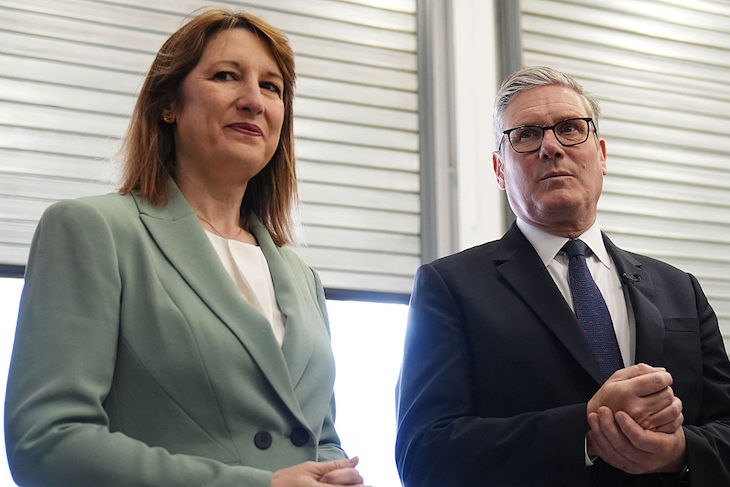There really is no good news for Rachel Reeves as she prepares her second Budget. This morning’s borrowing figures are not just bad; they hint at a sense of hopelessness, that Britain is sliding inexorably towards a very deep fiscal crisis.
This is yet another fiscal black hole for Reeves to fill, along with another about to be created by the OBR
In August, the government had to borrow £18 billion, £3.5 billion more than in August 2024. This is in spite of £40 billion worth of tax rises (or rather tax rises which were hoped to raise an extra £40 billion) in last year’s Budget. Government receipts are indeed up over the past year, £4.8 billion higher than they were in August 2024. Trouble is that spending was £8.4 billion higher than in August 2024, thanks in part to higher public sector wages, higher social benefits and not helped by a rise of £1.9 billion in the cost of debt interest. The latter rise is largely down to an increase in inflation. The UK public finances are especially exposed to inflation because an unusually high proportion of UK government debt – around a quarter – is index-linked. Worse, much of it is linked to the Retail Prices Index (RPI) which tends to run ahead of the now-preferred Consumer Prices Index (CPI).
There is a bad feedback loop in progress here: higher inflation leads to increased pressure on public finances which in turn leads to tax rises which themselves provoke higher inflation and so on. Inflation is being forced up partly because of rises in Employers’ National Insurance Contributions (NICs) which have increased costs on many businesses but especially on those which employ large numbers of part-time workers (the reduction in the threshold at which NICs become payable was reduced from £9,100 a year to £5,000, dragging a lot part-time workers into the net).
The deteriorating state of the public finances has not just caught Rachel Reeves unawares but the Office for Budget Responsibility (OBR) too. In March, it forecast that borrowing in the five months to August would come out at £72.4 billion. That is massive enough in itself, but the reality – £83.8 billion – is even worse. That is yet another fiscal black hole for Reeves to fill, along with another about to be created by the OBR as it downgrades its forecasts for productivity.
The poor state of the public finances is yet more ammunition for those who feel that Starmer and Reeves have made a disaster of their first year running the economy. But there is a sense of unreality in the Labour party. Increasing numbers within the party want to use the government’s fiscal failures to help turf Starmer out of office, and then replace him with a new leader and prime minister – quite likely Andy Burnham – who would make matters substantially worse. One of Burnham’s great policies is to introduce a wealth tax – something which has failed to raise substantial sums wherever it has been tried. Its main effect would be to repel some of the US tech entrepreneurs who have just promised to invest in Britain.
Reeves might have failed, but she remains one of the few on the Labour benches who does at least seem to understand the perils of high borrowing and of excessively high taxes – even if she has been unable to act on her pre-election promise of sorting out the public finances. If Starmer is forced out and Reeves goes with him, what follows will almost certainly speed Britain towards its fatal reckoning with the bond markets.








Comments